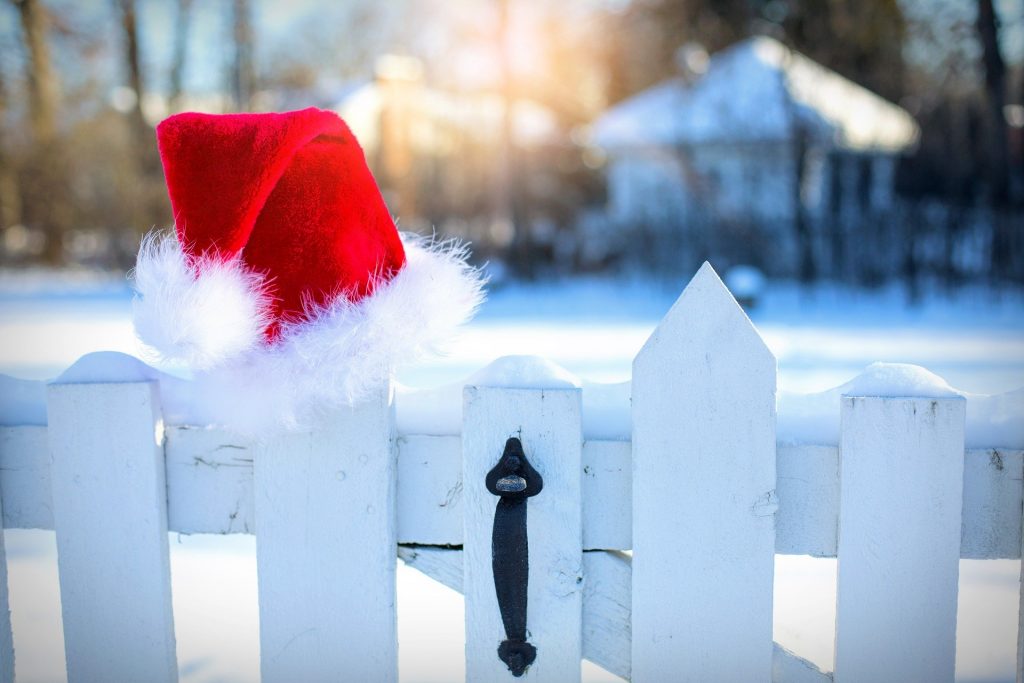The holiday season often includes sitting with extended family around the Thanksgiving table, eating breakfast with Santa or joining in song at Christmas Eve service.
After a year like no other, the holidays will also be anything but normal for many families in Northeast Pennsylvania.
But, where some people see loss, mental health experts say to look for opportunities.
“It’s definitely going to be unlike anything any of us have experienced,” said William Chase, Psy.D., a Clarks Summit psychologist and associate professor of psychology and director of the counseling center at Keystone College. “There is still room for celebration even when the world is in a messy place.”
Area mental health providers have seen parents — already stressed about the pandemic, including job security or managing their children’s virtual schooling — worried about losing holiday traditions or creating Christmas magic for their children.
After a year of pandemic-related losses, such as a normal school year, vacations, sports seasons or playdates with friends, parents worry the holidays will be another thing canceled by the coronavirus. Children worry if Santa could catch COVID-19 or whether their Elf on the Shelf must quarantine.
“It’s normal to feel sad or anxious,” said David Palmiter, Ph.D., a Marywood University professor who has a private counseling practice. “We all have to cut ourselves slack for these shared experiences we’re having.”
Last week, the Centers for Disease Control and Prevention urged Americans not to travel for Thanksgiving and not to spend the holiday with people from outside their household. Meanwhile, Pennsylvania strengthened travel restrictions and mask requirements. As coronavirus cases surge locally and nationally, the guidelines served as another reality check in an unprecedented year.
Palmiter suggests families have open conversations about the loss of holiday plans or traditions. By letting children experience that sense of grief or disappointment, they can learn a strong lesson on empathy and loss. The conversation can then turn to the chance to create new rituals, he said.
It’s hard for children to think they may not see grandparents or other relatives for Thanksgiving or Christmas, said Teresa M. Conte, Ph.D., a pediatric nurse practitioner and director of the undergraduate nursing program at the University of Scranton.
“It’s OK to say ‘mom is disappointed too,’” she said. “It’s something you have to grieve. … But, new doesn’t mean bad. Different doesn’t have to mean not as fun.”
Parents want things to be normal, but that’s the mistake, Chase said.
“Things aren’t the way they always are, but it’s going to be OK,” he said. “It’s complicated. It’s undiscovered territory for us.”
Joseph Cice, Ph.D., a Lackawanna College instructor of psychology and human services, told his students that instead of thinking of what will be missed this season, think of creative ways to make the holiday special.
Technology can help connect families and even gives people the ability to interact with family they do not usually see during the holidays, he said.
This year can also serve as a way to celebrate the time with your immediate family, the experts said.
“We’ve been forced to be together for months now,” Chase said. “Yes, we can struggle together, but we can celebrate together too.”
Consider other Thanksgiving activities
- Host a virtual Thanksgiving meal with friends and family who don’t live with you.
- Schedule a time to share a meal together virtually.
- Have people share recipes and show their dishes they prepared.
- Watch television and play games with people in your household.
- Watch Thanksgiving Day parades, sports and movies at home.
Find a fun game to play.
Shopping
- Shop online sales the day after Thanksgiving and days leading up to the winter holidays.
- Use contactless services for purchased items, like curbside pick-up.
- Shop in open air markets staying 6 feet away from others and wear a mask.
Other activities
- Safely prepare traditional dishes and deliver them to family and neighbors in a way that does not involve contact with others (for example, leave them on the porch).
- Participate in a gratitude activity, like writing down things you are grateful for and sharing with your friends and family.
— U.S. Centers for Disease Control and Prevention
Making new traditions
Local experts suggest the following ways to have a safe holiday season during the pandemic:
- Create the magic. Traditional Santa visits may not be possible, but children could write letters or send videos to the North Pole.
- See the lights. Wear your pajamas, make some hot chocolate and pile in the car. Drive to see the Christmas lights in your neighborhood or beyond.
- Show people you care. Leave Christmas cookies or other treats on the porches of family, friends or neighbors.
- Connect with technology. Share mealtime through a video call or make a recipe together. Assemble gingerbread houses and ask family members to judge them from afar. Some streaming services, such as Netflix and Disney Plus, allow family or friends to have a “watch party” while staying apart. Make some popcorn and watch a holiday movie together.
- Send Christmas cards or care packages to loved ones. Include a handmade ornament or another token.
- Write a holiday bucket list, with must-do activities, including baking cookies, singing carols and building a snowman.

Sarah balances life as a reporter for The Times-Tribune and as the mom of two little girls. A graduate of Ithaca College, Sarah started covering education in 2006. She has received awards for her reporting from the Society of Professional Journalists, Pennsylvania Newsmedia Association, Inland Press Association and Pennsylvania Women’s Press Association. She lives in Clarks Summit with her husband, their daughters and their sweet pug, Sadie. Reach her at shofius@timesshamrock.com, 570-348-9133 or @HofiusHallTT.




